
Urban List Guide To Brisbane
Discover the best of Brisbane—where to eat, drink, explore and escape, plus local news and cultural must-reads, all curated by Urban List.
News
See All
South Bank’s New Riverfront Concert Series Adds Grace Jones, MARINA And King Stingray To The Lineup

All The Brisbane Travel News And Holiday Deals You Need To Know

AC/DC Shakes Up Suncorp Stadium This Weekend—Here’s How To Navigate The Chaos
Features
See All.png?auto=format%2Ccompress&fit=crop&ar=3:2&w=340)
From Sun-Drenched Sips To Signature Cocktail Stations: How We’ll Be Entertaining This Summer

All For Under $50: The Body Shop Has Your Secret Santas And Stocking Stuffers Sorted

The Feed | All The Brisbane Food News You Need To Know
Best Of Brisbane
See All
The Best Hotels In Brisbane To Check Into In 2026

The Best Hotels In Singapore Worth Booking In 2025

20 Of The Best Long Lunch Spots In Brisbane
Things To Do
See All
This Bold Performance Blends Movement, Music And Drama Into One Monumental Production

Your Tamworth Country Music Festival Cheat Sheet: 10 Must-Do’s For A Seriously Good Time

25 Of The Best Beauty Gifts To Shop For Christmas 2025
Food + Drink
See All
16 Brisbane Christmas Markets You Need To Hit Up This Festive Season

In Charge Of The End-Of-Year Lunch? This Riverside Gem Is Primed For Group Feasting

18 Secret Santa Gifts Under $50 That Are Actually Epic
Local Escapes
See All
This Uber-Cute A-Frame Cabin An Hour North Of Bundaberg Comes With A Rustic Outdoor Bath

Just 45-Minutes From Brisbane, This Quirky Treehouse Has Its Own Charming Outdoor Bath

Gang’s All Here: The Group Trips We’re Planning For Extreme Rancho Relaxo Mode
Urban List Guides
- Australia
-
New Zealand
- New Zealand
- Auckland
- Christchurch
- Wellington
- Queenstown (soon)
- Asia
- Rest of the world
Rest Of The Best

The Best Things To Do In Brisbane This Weekend

43 Of The Best Netflix Documentaries To Watch In November 2025

56 Of The Best Shows And Movies On Disney Plus Australia (December 2025 Edition)

Riffe For Goodness
CBD cafe Felix For Goodness is set to bring its made-from-scratch specialty to a second location in Teneriffe.

Koko Black
Sweet tooths rejoice, because one of Australia’s most beloved artisan chocolatiers is making its return to Queensland.

Rise Newstead
By day, this spot is serving decadent pastries and brunch dishes, and by night it's the elegant place to be for French-inspired dining on the waterfront.

27 South Brewing
Pour one up for Coorparoo’s newest brewery taproom from a local favourite, tucked behind a roller door.

75 Of The Best Movies On Netflix Australia To Stream Tonight (December 2025)

The Best Musicals And Theatre Shows In Brisbane You Need Tickets For

16 Gifts For Her That Are All Killer, No Filler

Ruby’s Wine Shop
Knock-off drinks and vibey kick backs have a new home in Albion’s brand-new wine bar and store.

Victoria’s Secret
The Y2K craze has well and truly taken over with two new Victoria’s Secret stores opening in Brisbane soon.

Bracken Ridge Tavern
Bracken Ridge Tavern unveils their epic $10 million transformation, with a new Italian eatery, kids' playroom and sports bar.

Alfi Eatery & Bar
There’s a Mediterranean newcomer set to shake up Everton Plaza’s vibrant Park Lane from certified hospo royalty.

Rapper Dave Is Bringing ‘The Boy Who Played The Harp’ Tour To Australia So Now Is The Time To Cry

Need An Excuse? Comedian Mitch Dale Will Cancel Your Plans For You This Weekend

15 Gifts You Can Find In Brisbane For Everyone On Your Christmas List

Big Boy Bangkok
Big vibes and big flavours are what you can expect at Newstead’s bold new Thai spot.
.png?auto=format%2Ccompress&fit=crop&ar=3:2&w=520)
The Vine Room
Perched in prime location on the Cairns Esplanade, this stunning new dining destination is designed for slow, sunny afternoons and relaxed evening dinners, with a menu inspired by the best of Southern Europe.

Breakfast Creek Hotel
This iconic 135-year-old pub is entering a new era, unveiling a landmark transformation and new dining offering.


Christmas Sorted: The Ultimate Guide Gifting Something Special To Everyone On Your List

Trout Dip And River Tubing: How Model Katie Muirhead Unwinds In New York State

18 Affordable Luxury Gifts To Give Someone Special In 2025
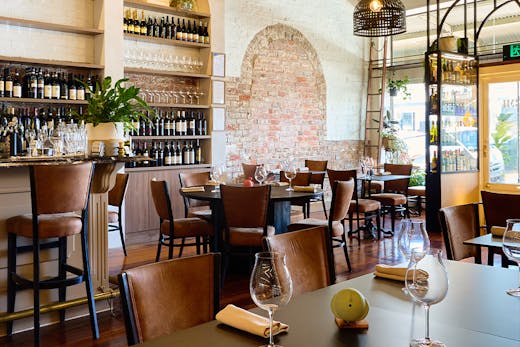
Attimi By Dario Manca
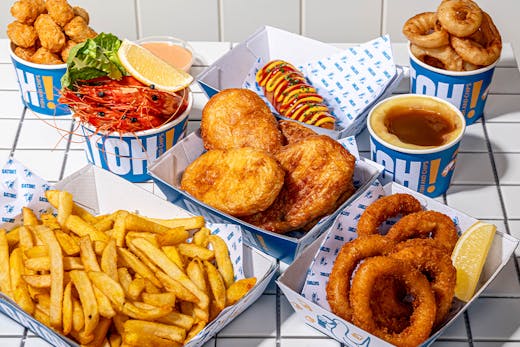
Catch Fish And Chips
Delightfully golden, battered and perfectly salted—that's what you can expect at the fish and chips shop from the El Camino crew.

Night Market
If you’ve ever ventured into an Asian night market you know it's a feast for the senses. It's also what inspired the Valley's latest eatery.

TABOO
Modern Thai flavours reaching new heights? Yep, that’s what you can expect at Fortitude Valley’s stunning new rooftop restaurant.

Foodie Gifts: 21 Delicious Gift Ideas For Your Favourite Foodie

Legendary New York Cocktail Bar Death & Co Is Now Open In A Brisbane Basement

Everything You Need To See, Eat And Do In Lake Macquarie
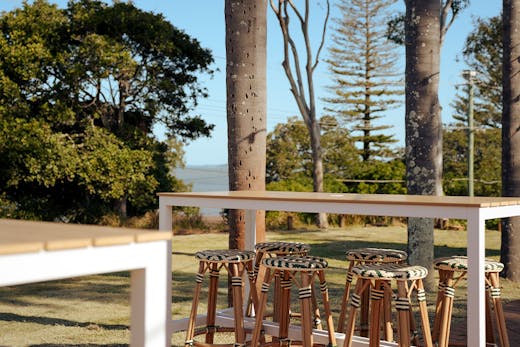
Grand View Hotel
Queensland oldest licensed pub is reopening after a $6 million upgrade, marking a new era in its proud 174-year history.

Birria Boy Taqueria
This pop-up taqueria is a fiery ode to Mexico’s beloved birria tacos in Woolloongabba.

Above Rooftop & Bar
Your summer just got a Mediterranean upgrade with Fortitude Valley’s brand-new rooftop destination.

Perreo
Get your hands on Colombian sandwiches, burgers and hot dogs at Fortitude Valley's new late-night eatery.

Notes From The GOAT: Your Guide To Summer Streaming

Notes From The Goat: 6 Summer Streams You’ll Actually Want To Watch

PSA: Perth Festival’s 2026 Lineup Is So Good It’s Worth A Trip Out West

Danbo Labo
South Brisbane's new experimental ramen spot is cooking up new and innovative flavours on the regular.

Eclair At The Bay
One of Byron Bay’s most loved patisseries is moving on up, announcing a flagship spot in Newstead.

EdwardsAndCo Teneriffe
It's always a good hair day at this brand-new boutique salon from Australia's leading hair agency.

Figtree Social
Yeerongpilly's latest cafe blends brekky classics with native ingredients to create a truly contemporary Australian flavour.
.png?auto=format%2Ccompress&fit=crop&ar=3:2&w=340 340w)
Where Land And Kai Meet: The South Island City Telling Kiwi Food Stories

What’s On In Brisbane This Week, This Month And Beyond

Gifts For Mum: 39 Awesome Presents She’ll Actually Love


House Of Vice
The Valley is welcoming a glittery new nightclub where disco beats reign supreme.

Country Road
Fashion legacy meets local history in this CBD flagship store inspired by the native Queensland landscape.
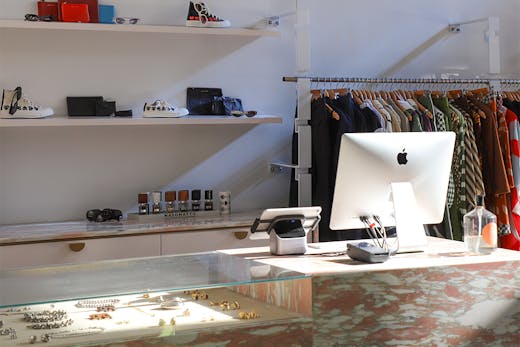

Just In Time For Summer, The Straddie Hotel Has Finally Reopened With A Fresh New Look

5 Theories We’ll Be Checking Off When Stranger Things Drops This Month

Here’s How You Can More Than Double Your Annual Leave In 2026

Merge
This pan-Asian yakitori bar in Wilston Village is dishing up smoky charcoal-grilled skewers, flavour-packed street food and house-made mocktails.

RAISE Rooftop
The CBD has levelled up with a New York-style rooftop cafe serving specialty coffee, pastries and epic views.

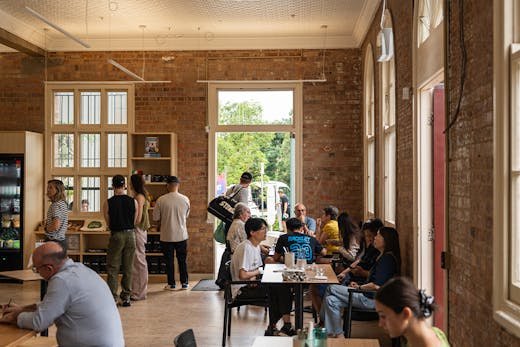
Tom’s Kitchen
Nestled in the heart of Queensland Ballet, this seasonal cafe is an ode to local produce and laid-back dining.

18 Gifts For Mum She’ll Be Stoked To Open This Christmas

What Will The Weather In Brisbane Be Like On Christmas Day 2025?

The Fox Hotel Is Officially Going Back To Its Roots With The Revival Of Hotel Terminus


Donana Mini Hotpot
The cutest hot pot train is pulling into Chermside with a DIY sauce bar, cocktails and an exclusive soup base.

Pappa Flock
There's a new viral chicken spot flying into town, serving crispy tenders and house-made lemonade.

Hideki James Street
Modern Japanese izakaya Hideki has arrived on James Street with an atmospheric second location.

Brisbane’s Best Christmas Lights To Jump In The Car For This Year

Lady Gaga Brisbane: Set Times, Setlist, And Everything You Need To Know

PSA: The Sweetest New Opening Is Taking Over Queen Street Mall With Free Chocolate And More

Sprout Artisan Bakery HQ
Sprout Artisan Bakery has a new headquarters, unveiling a production facility and retail store in Albion.

Scugnizzi Westfield Chermside
Scugnizzi is opening a second location, bringing its crowd-fave Italian street food to Westfield Chermside.

Naga Thai
Bold flavours and vibrant Thai dining have a new home—Naga Thai is officially back.
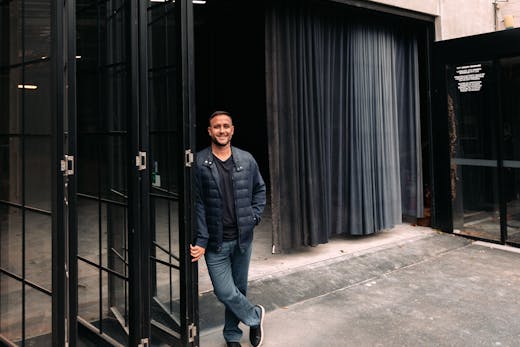
Aunty
Tassis Group is adding to their all-star line-up with a new modern Asian restaurant in an iconic Fortitude Valley location.

This Island 2.5 Hours From The City Has A Roaming Cocktail Van For Your Post-Swim Sips

22 Of The Best Christmas Party Venues In Brisbane The Whole Office Will Love
.png?auto=format%2Ccompress&fit=crop&ar=3:2&w=340 340w)
8 Reasons To Book Air New Zealand’s Epic Cyber Week Sale
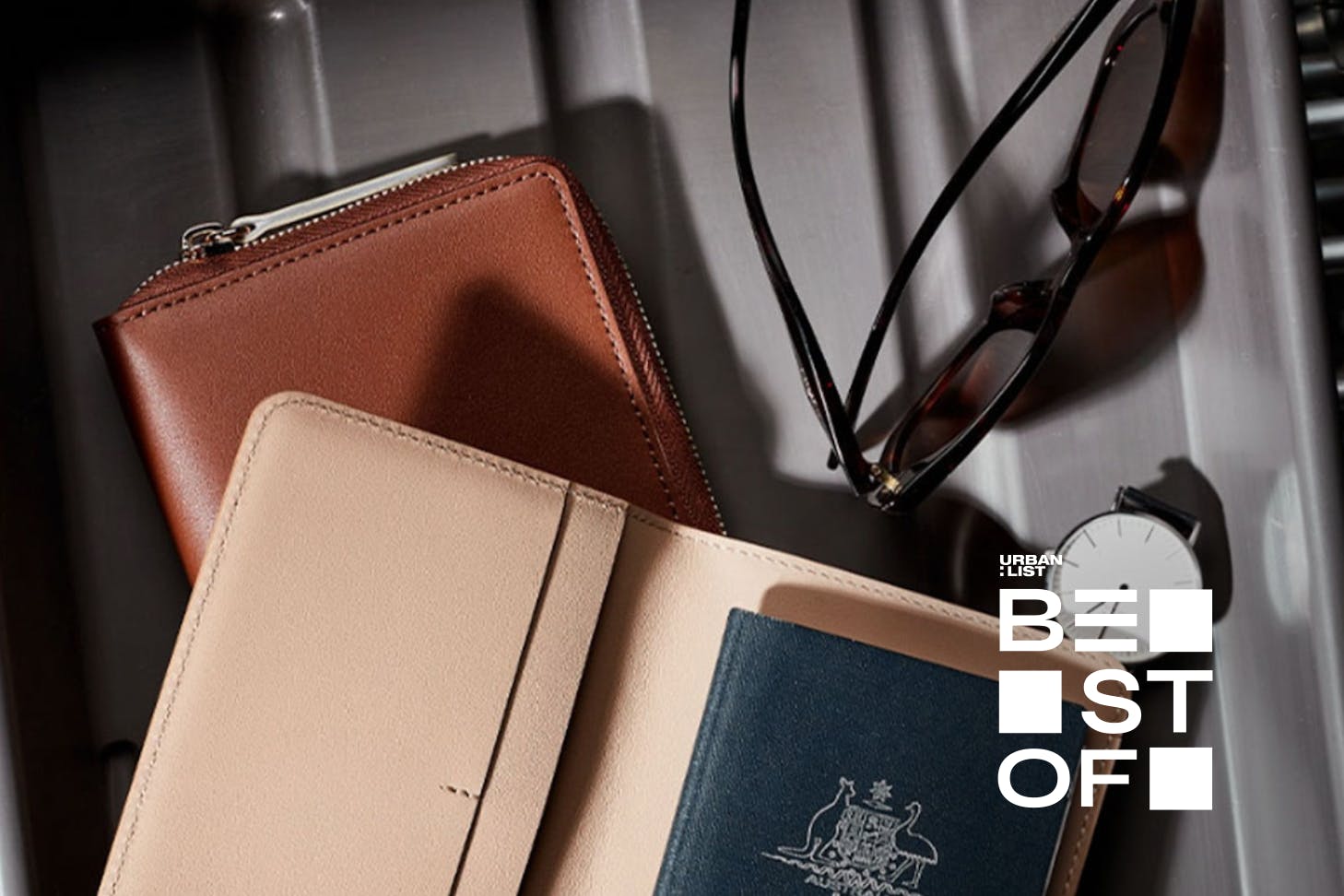
Gifts For Travellers: 23 Gift Ideas For The Frequent Flyer In Your Life

The Best Black Friday And Cyber Monday Early Deals (2025)
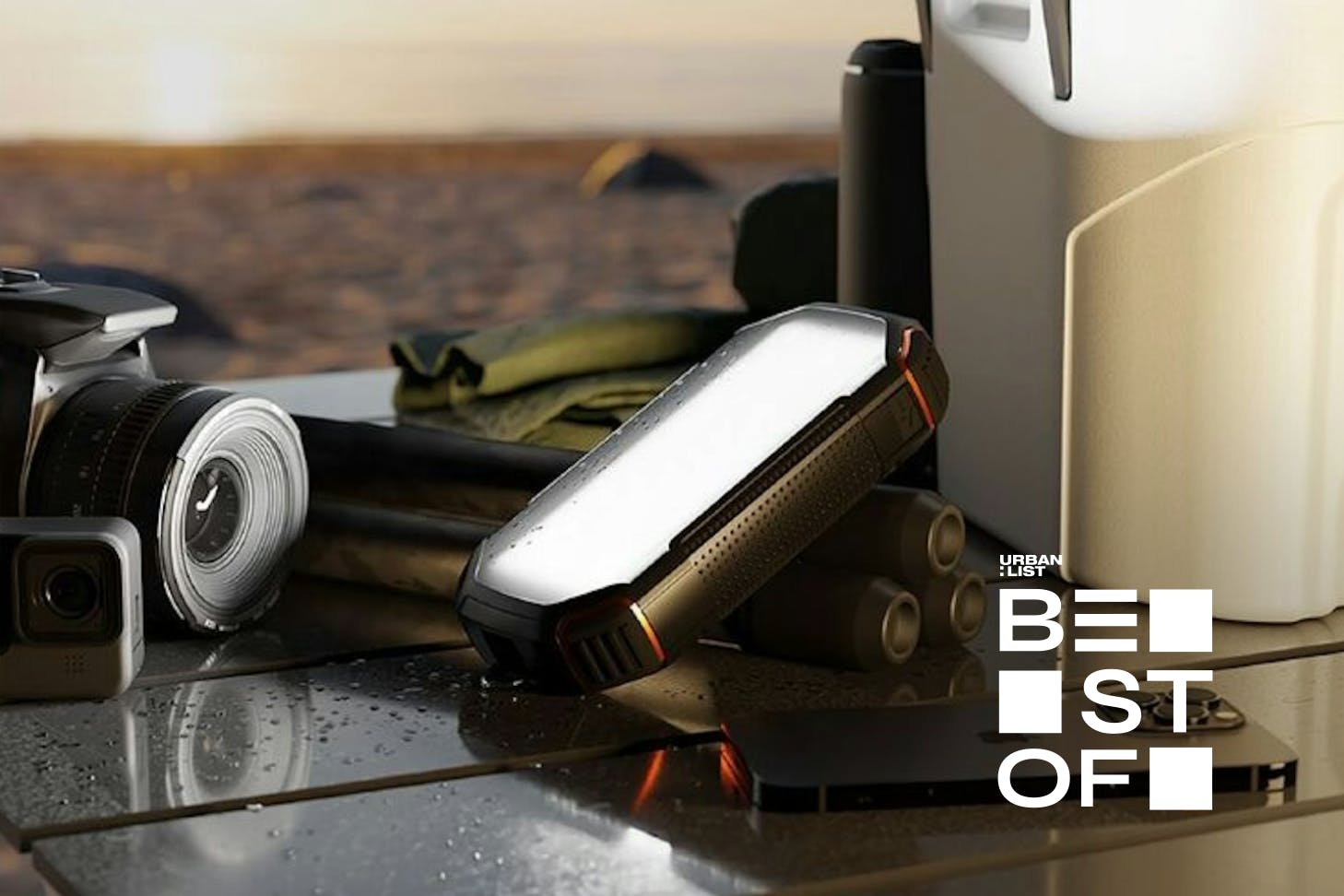
Outdoorsy Gifts: 21 Gifts For That Person Who’s Always Outside

19 Homeware Gifts That Are Perfect For Your Decor-Loving Pals

15 Gifts For Him That Are Straight-To-The-Pool-Room Worthy

Where To Get Santa Photos In Brisbane For Your 2025 Christmas Album
.jpg?auto=format%2Ccompress&fit=crop&ar=3:2&w=340 340w)
Tucked Away In The Mountains Of Mt Jukes, This Private Eco Retreat Is Designed For Digital Detoxes

Postcards From Singapore: Your Pocket Guide To Celebrating A Milestone In The Lion City

Antiquing And Baked Apples: How Talent Manager Em Mannswirth Unwinds In New York State

Oprah Winfrey, Queen Of Daytime TV, Returns To Australia For First Time In A Decade

37 Of Brisbane’s Best New Year’s Eve Parties And Restaurants To See Out 2025

18 Of The Best Restaurants In Paris For Your 2025 Euro Trip

A Game-Changing Precinct With Plenty Of Public Spaces Is In The Works For The Heart Of Toowong

Your Guide To Euro-Style Road Trippin’—Minus The Long-Haul Flight

Toombul Shopping Centre Is Returning, Here’s Everything You Need To Know

These Stunning Queensland Escapes Deliver Euro Energy Without The Jetlag

Treat Your Mates To A Bit Of Bali In Byron With This Luxe Resort-Style Stay

Now Open: The Best New Restaurants, Bars And Cafes In Singapore

27 Of The Best Gifts For Kids Of Every Age And Stage

The World As A Studio: Sophie Coote On How SIR. Finds Its Stories In Cities, Textures And People

Gifts For Her: 36 Dreamy Presents To Impress In 2025

Behind The Camera With Sianna Catullo: The First Nations Filmmaker Creating More Pathways For Mob

Brisbane’s Summer 2025–26 Weather Forecast Is In And Things Are Getting Spicy

Lobster Rolls And Long Island Beaches: How Artist Pam Hendry Resets In New York State

The Secret’s Out: A Fresh Batch Of Venues Are Serving Exclusive Dishes For The Month Of November

All The Queensland Music Festivals Happening In 2025 And Beyond

High-End Kiwi Cuisine, Coast To Coast: The Itinerary Defining New Zealand’s Culinary Golden Era

Take A Seat At 22 Of Brisbane’s Best Private Dining Rooms

Queen Street Mall Is Getting A Major Glow-Up—And Stage One Lands This Summer

This Spectacular 10-Day Christmas Festival Is Back To Light Up The City Skyline

Christmas In Brisbane: The Best Events And Things To Do This Festive Season
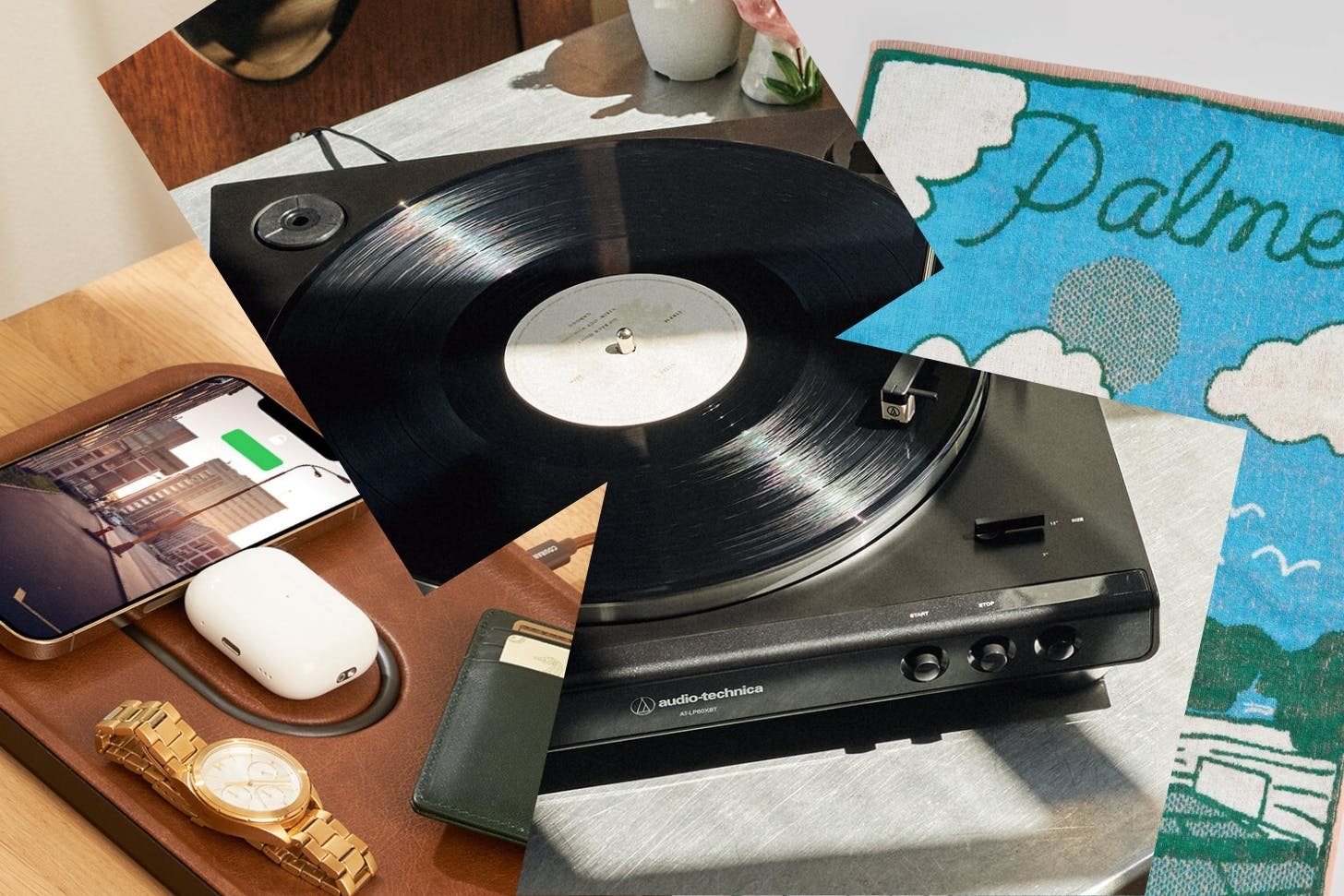
Make Father’s Day Fabulous With 27 Of The Best Gifts For Him

Give Someone A Little Self-Care With This Gift Guide For All Things Beauty And Wellness

A Multi-Level Luxury Fitness And Wellness Hub Is Landing In West End Early Next Year

Win Christmas This Year With 10 Unique And Thoughtful Gifts
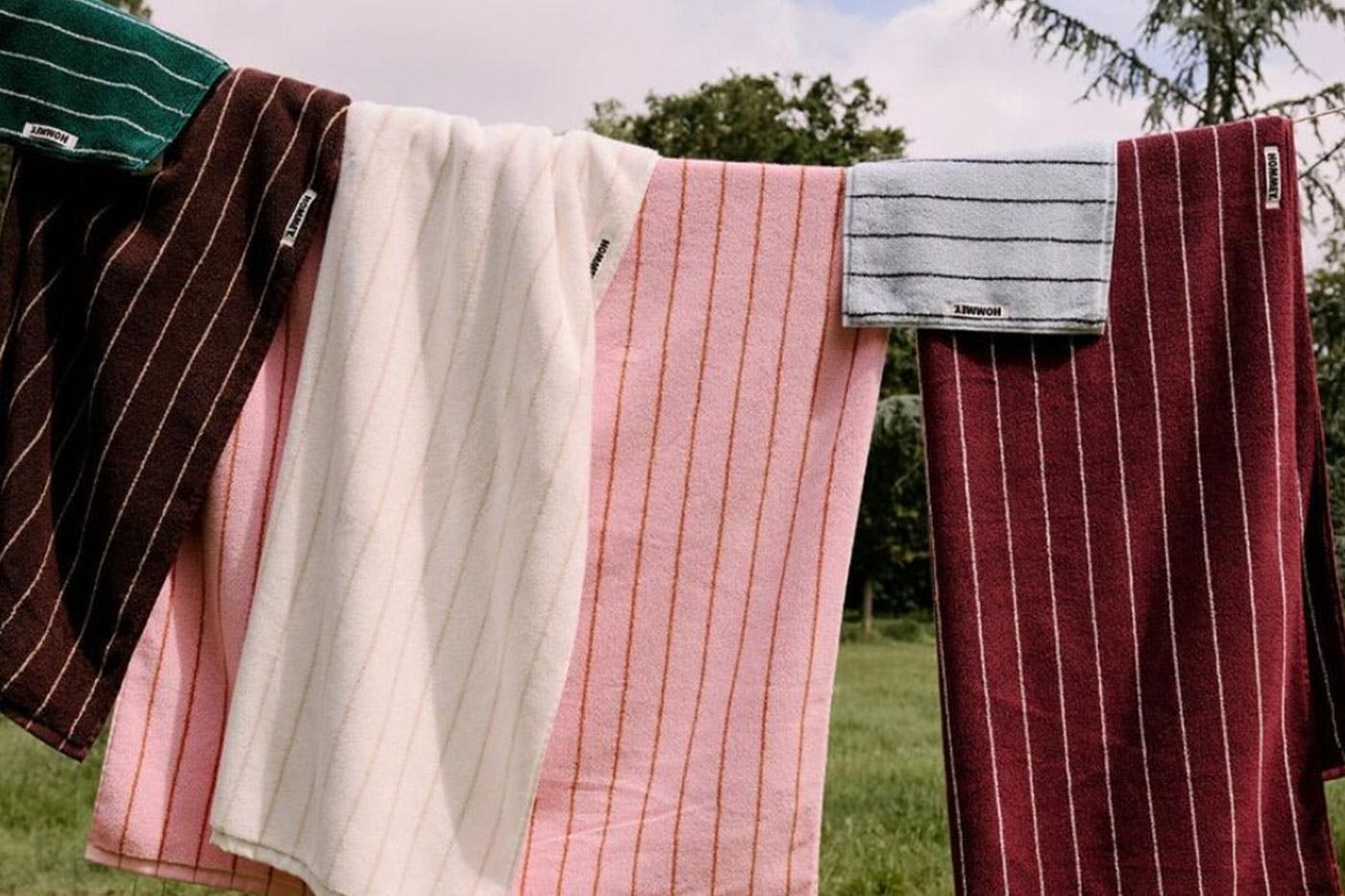
These 17 Sustainable Gifts Are Your Answer To Conscious Gift Giving

5 Of The Best Boozy Gift Ideas To Wrap Up This Valentine’s Day

Brisbane’s Most Festive Putt Putt Course Is Back And Merrier Than Ever

The Best Gift Cards To Buy When You Need A Last-Minute Present

$5 Eats And Three-Star Stunners: Aussie Chef Dave Pynt’s Singapore In 48 Hours

8 Awesome Reasons To Stopover In Singapore

Contiki’s Black Friday Sales Have Just Dropped With Top-Notch Deals From As Little As $2,210

Matty Fahd Swapped The City For The Country And Found The Magic In Slowing Down

Serenity Now: Just 20 Epic Places To Spend Your 2025 Summer Holidays

From Long Lunches To Late Nights, Queen’s Wharf Has Festive Season Covered

Everything You Need To Know About Brisbane Airport’s $5 Billion Transformation

Brisbane Comedy Festival Has Dropped Their 2026 Lineup And It’s A Joke In The Best Kind Of Way

Sweet Dreams Are Made Of These Limited-Edition Dubai Choc Cinnamon Buns And Loaded Croissants

This Sculptural New Retail Landmark Is Set To Turn Heads On James Street

An Ambitious $2.6B Entertainment City With Its Own Theme Park Has Been Proposed For Moreton Bay

The Biggest Banksy Exhibition In The World Is Now Showing In Brisbane

57 Of The Best Places To Stay In 2025 According To Our Travel Editor

Adore Beauty Is Opening Another Brisbane Store On The Northside

A Massive Entertainment Precinct With An 800-Person Gastropub Is Opening Next To Brisbane Airport

26 Of The Best Burgers In Brisbane To Wrap Your Hands Around
.png?auto=format%2Ccompress&fit=crop&ar=3:2&w=340 340w)
A Four-Course Black Tie BBQ Is Taking Over Osbourne Hotel For One Night Only


